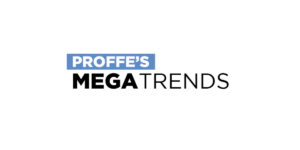Microsoft Has Its Head in the Cloud…and More
You might think of LinkedIn as something you can use to spy on your co-workers and learn more about where they went to school and other places they may have worked before you met them, but it’s, in the truest sense of the phrase, a valuable piece of enterprise tech.

You see, millions of human resources personnel and executive recruiters around the developed-world use LinkedIn as an extension of their companies’ own human resource departments. It helps them to streamline the process of finding new talent, which in turn helps their companies’ growth.
LinkedIn was founded by Reid Hoffman in 2002. Its first round of major investment came from venture capital firm Sequoia Capital. By August 2004, it had over a million users, and today it has over 830 million users world-wide. It is such a powerful tool that every minute, 6 people are hired into new jobs through LinkedIn. Its membership continues to grow a few percentages per year.
In 2016, LinkedIn was purchased by Microsoft (NASDAQ: MSFT) for $26.2 billion.
It joins a variety of other enterprise tech products at Microsoft. Besides the ubiquitous Office software suite, in the past few years, Microsoft has become very successful in producing cloud computing apps – powered by its Azure cloud computing division – such as SharePoint, which allows multiple users to edit documents simultaneously. One of the really great parts about using SharePoint is that it automatically saves everything, so you never can lose your work if you forget to hit the save button.

Although Microsoft’s stock is down about 30% from its peak in December 2021, its revenue and profits are extremely strong with year over year increase in revenue of about 12%. In fact, for the past three years, profits and revenue have increased every year.
So, the stock price may not be doing that great right now, but the real financials of MSFT are strong. This makes it a sound investment right now, and that’s because it’s a true MegaTrend stock.
SAP Nailing the Big Picture with the Details
The German software company SAP (FWB:SAP) is a pioneer in enterprise tech. It was, in fact, one of the first companies to publish so-called enterprise resource planning (ERP) software.
So, what exactly does ERP software do? ERP software is that one main program at your company that keeps track of everything. It keeps the human resources information for each employee.
It also keeps track, in real time, of inventory of raw materials, work in progress, and finished products. Customers’ orders are also typically tracked in ERP software. Travel reservation scheduling is a part of the ERP software as well, and of course, keeping track of how money is spent and flows throughout your enterprise is the primary focus of ERP software.
This is enterprise tech at its finest.
SAP was founded back in 1972 when Xerox (NYSE: XRX) decided to divest itself of its computer hardware development programs. Xerox asked for IBM to supply them with a new mainframe system.
In exchange, XRX gave IBM some interesting software that they had been working on. The software had a similar business management goal to what the five IBM coders had been developing. IBM instructed the five to stop working on their version of the software.
The five didn’t want to abandon years of work. Instead, they decided to band together to start their own company. They named the company SAP ( Systemanalyse und Processentwicklung).

As with most market leaders, SAP has taken a hit as the global economy has slowed. It’s down 36% year-to-date, yet it’s already coming back. Revenues since 2018 have been expanding, which is always good news for a large growth stock. Its current low price is a flashing sign that SAP is underpriced now and that it will return to its previous vigorous growth track ahead of most of its competitors.
It’s part of the true MegaTrend of the digital economy, and a worthy stock for your investment money.
Intuit Goes from Grassroots to Enterprise
Intuit (NASDAQ: INTU) is another great example of a company with products that represent true enterprise tech.

Intuit is a pioneer in the e-finance software industry. It’s one of the first developers to publish software for doing personal bookkeeping. Quicken and QuickenBooks were Intuit’s first products.
Intuit’s gold standard TurboTax is one of the most popular personal tax software packages in the US. This tax season, about 16 million Americans will use it to do their taxes.
Although Intuit started out as a personal accounting software developer, they have really grown into something much bigger. Their vision is to revolutionize the way individuals and businesses manage their finances. They want to make it possible to pay all bills, credit cards, taxes, employees, etc. straight from a single software platform.
This vision combined with its current success in many corporate e-finance software spaces make INTU a true MegaTrend stock.
Its stock is off 36% year-to-date, but it has been a stellar performer up to now, gaining triple digits annually for more than five years. This is a short-term dip with plenty of bad news priced in for now. Simply put, like MSFT and SAP, this disconnect between INTU’s stock performance and financial performance make it a good buy at current prices.
The Enterprise Tech and Digital Economy Megatrend
These are three examples of companies that power the enterprise tech MegaTrend. In all three cases, the stock prices have been severely beaten down, but overall, the companies have strong financials and are leaders in their respective markets. That means when the markets start to recover, they’ll be the first stocks back on the growth track in everyone’s portfolios.
More MegaTrends FREE for 30 Days!
For a limited time, start your free, 30-day trial and unlock access to my flagship publication, Proffe’s Trend Portfolio. Right now is the perfect time to discover this outperforming portfolio for yourself. No credit card is required. CLICK HERE!

